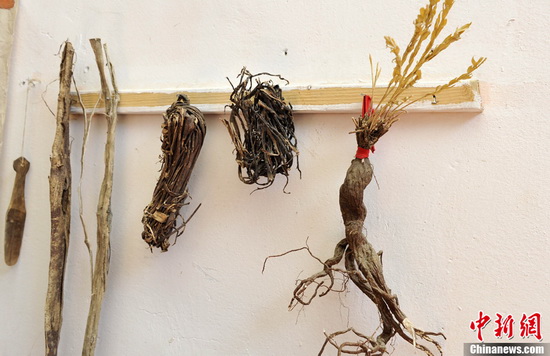
The main material of making the Tibetan paper, the root of Chinese plant stellera. [CNS Photo / Li Lin]
More than 1,300 years ago, when the Princess Wencheng of Tang Dynasty went to Tibet to get married, she also brought the papermaking technology from the central plain area to this plateau. After years of study, innovation and inheritance, the Tibetan paper was born.
Since the main material for making the Tibetan paper is "wolf poisonous weeds", the root of Chinese plant stellera, the paper has some toxicity and is resistant to bugs' biting. It has incredible durability, and is easy to preserve and hardly get rotten. In the past, the Tibetan paper was mainly used to print religion related books and as the writing material for Buddhist scriptures.
Nowadays, it's often used to make Tibetan paper notebooks, photo albums, lanterns and so on. This unique technology has been listed in the first batch of National Intangible Culture Heritage Directory in 2006.
